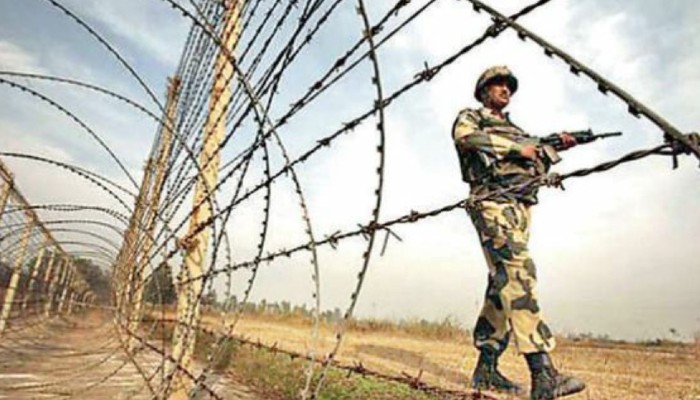Agriculture is the mainstay of the economy in Jammu and Kashmir
In Jammu and Kashmir, farmers are seeing a promising prospect for their produce; they are encouraged to grow exotic vegetables to maximize their monetary benefits.
“In the Hawl village of Pulwama district in South Kashmir, farmers have less paddy land so we thought of introducing exotic as well as local varieties of vegetables here. This is the smart way of increasing the production as well as benefits,” said Younis Ali Sofi, an agriculture expert.
“A farmer sells cauliflower at Rs 10 per kg, but he earns Rs 150 if he sails 1 kg broccoli,” Sofi maintained.
In the Union Territory, exotic vegetables are cultivated in 467.16 hectares of land where 9917.55 metric tonnes of vegetables are produced. It's consumption within Kashmir is 5956.11 metric tonnes and revenue generated so far is Rs 47.68 Cr, he added.
The Government is providing training to farmers from time to time in order to keep them updated with the latest technology.
People prefer it health wise as there is a trend of consuming organic and exotic, he added further.
Mohammad Ayoub, another farmer, said that the vegetables produced in Kashmir have received a phenomenal response.
“Today, we send around 40 to 50 trucks of vegetables to various markets,” Ayoub said.
Encouragement for effective agricultural activities:
Some of the vegetables which have been introduced here include broccoli, parsley, raddish, red cabbage etc.
“Before introducing these vegetables we had to motivate the people of this place to utilize their land for greater benefits which comes by selling these vegetables in the local as well as national markets,” Younis Ali Sofi said.
He said that before distributing seedlings to the farmers they also did soil testing of their lands to check whether land is viable for the production.
"We did a soil analysis to check whether the land is fit for these vegetables or not. We also introduced seedlings of hybrid and local varieties as well," he said.
During the month of November 2021, the agriculture department distributed the seedlings of onion and now the next batch will be distributed in the month of March 2022.
“We would also like to extend this concept to urban areas so that people get fresh and exotic vegetables from their own kitchen gardens,”
In Safnagri village of Shopian, Mohammad Shafi, a farmer, is working on cultivation of peas. In November, he sowed the seeds in a large tract of land.
By March his crop will be ready, he said.
“In one year, I get yields from three crops I sow,” Shafi said.
Shafi is able to earn at least 13 lakhs annually which he said is enough to suffice his living.
In 2017-2018, the village was certified as an organic vegetable and at least 42 local farmers are registered as organic farmers.
None at this village use any form of chemical fertilizers or pesticides.
Sofi said that at least 20 hectares of land have been brought under organic farming in this village by the department of agriculture.
Shopian is known for its apples and is known as the apple town of Kashmir but with governments intervention organic farming is proving productive in this village.
The vegetables from this village are supplied to other districts of Kashmir and mandis for selling.
With the advent of modern technology different types of seedlings are also being cultivated and sold in the market.
The seedlings grown here include onion, chili, tomato and brinjal. According to one of the farmers, on a daily basis they are able to earn at least Rs 10000 only by selling seedlings.
“One kanal of land is able to yield seedlings worth Rs one lakh,” Shafi said.
The agriculture department has provided the seeds, set up polyhouses, and vermicompost units -- all free of cost to the farmers
The Government is also providing orientations and training to farmers from time to time in order to keep them updated with the latest technology.
In Kupwara, which is a border area with hills, the Government has sketched a comprehensive agricultural transformation plan.
The Government has introduced various centrally sponsored schemes which are proving beneficial to farmers and overall the agrarian economy in the UT.
The introduction of flagship programmes or schemes like PM KISAN, PM KMY, Soil Health card scheme, farm mechanization, MadhuKranti PMKSY, directly implemented and monitored by NITI Ayog, led to significant developmental changes in the district.
This official further said that introduction of high yielding varieties of paddy like SR-3, SR-4 has increased crop yield from 50 quintal to 75 quintal per hectare here. In addition to that, the introduction of HYV, hybrid and exotic varieties has brought a new revolution in the vegetable sector.
As per statistics, Kupwara district has 42600 hectare of area under agriculture crops. Paddy is cultivated on an area of 17000 hectares providing an average of 70-75 quintals of grains per hectare and 10.20 lac bundles of dry fodder to the livestock. Maize is grown on an area of 18000 hectares with an average production of 12 quintals per hectare. Vegetables are grown across the district in every household on an area of 5000 hectares with an average production of 300 quintals per hectare.
Besides, pulses are grown on an area of 1200 hectares, potatoes on 500 hectares with an average of 200 quintals per hectare. Unemployed youth have got new avenues to work through the introduction of modern technology.
Kashmiri spices in Dubai market:
In the year 2021, the Department of Agriculture in collaboration with an international marketing group (Lulu Group) had showcased the Kashmir specific vegetables, spices and cereals at Dubai.
While talking about this initiative, Chowdhary Muhammad Iqbal, Director of the Department of Agriculture, said this venture was started under the supervision of Principal Secretary AP&FWD, Navin Kumar Chowdhary and they are working on a long term ambitious plan to strengthen the agriculture sector in J&K.
“Several initiatives including integrated farming approach, diversification of agriculture, organic way of cultivation, the introduction of new marketing channels, MoUs with different stakeholders, e-marketing of saffron at IIKSTC Dusso, etc have been taken so far,” he said.
Earlier, the vegetable consignment including kale, turnip, carrot, white radish (long), cauliflower, broccoli, lotus roots, rice, dried mushroom and saffron were sent to the UAE from Srinagar International Airport and the entire operation of grading, packing, labelling was conducted under the strict supervision of the Director Agriculture, J&K.
The government has imparted a fresh boost to all this process and sent the fourth consignment of vegetables to Dubai recently.
The consignment includes kale, turnip, carrot, radish, broccoli, lotus root and G.I tagged saffron to Sharjah, Dubai, a statement from the Agriculture Department maintained.
 Contact Us
Contact Us  Subscribe Us
Subscribe Us









 Contact Us
Contact Us
 Subscribe
Subscribe
 News Letter
News Letter

